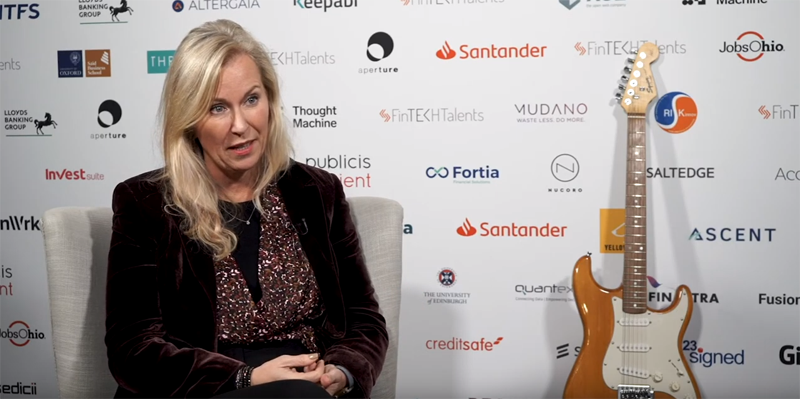
We sat down with founder and CEO of Thrive Partners, Pam Bateson to talk about how organisations can leverage the expertise they already have in-house, to empower their employees and teams at FinTECHTalents 2019.
Watch the video now:
How do you support talent development?
We have a whole learning platform. We create the whole ecosystem around learning for organisations. We focus on three different aspects:
- One is how do you help individuals learn in the moment? They can get on-demand access to a business and thinking partner that can equip them for anything they’ve got to do in their job.
- We then record and analyse all those conversations. We help organisations really learn what’s consuming their people.
- Then we pull the metadata out of that and we can feed in society trends – the gender, geography or generational issues and help organisations understand what they’ve got to do to improve the employee experience.
What is the resistance against the more technological approach to talent?
Resistance is number one. There’s a lot of naivety from people that are buying the systems. They don’t know what to buy, how to buy it and how to deploy it. They find it hard to create sticky platforms and sticky learning experiences.
There’s still a steep dip mentality. They’re still ‘oh we buy it; took it off; the program is there; people will come to it’ and those days have gone. It’s much more about personification. It’s much more about equipping people in their careers. It’s about letting them take a place in the organisation and bring a personal touch.
I just don’t think that organisations, some organisations, I would say at least 80% really have the mindset to be able to equip the whole organisation with the skills that they need. Our platform equips organisations to mobilise all the internal expertise, but you have to come in with a mindset of everything that you need lies within the organisation. Traditionally, that’s not been the thing. They buy in external consultants and put them into the business and usually they’re hated and it’s short-lived, the learning that you get from that.
I think that the future of learning is about equipping everybody to be a teacher and a mentor to each other.
How do you challenge the legacy model with regards to talent?
The legacy mindset is prevalent. That comes from the buying quite traditional learning systems. Even where they’re buying the new ones – I was talking to kind of one of the giants at the show – and they’ve brought this incredible platform but people don’t know, people are not utilising it. It hasn’t socialised well. It’s something that they have to do rather than it being something that people want for themselves.
To that point that I mentioned earlier they’re not … I don’t know about you but when I sit in an organisation I want to feel worthwhile, I want to feel meaningful, I want to feel respected, I want to feel as though I’m doing a good job and I want to be valued for the experience that I have. We just need to find a place where everybody can be an expert and everybody can learn from that expertise. These big legacy organisations, in my mind, don’t have the experience to be able to put in that kind of whole system learning.











